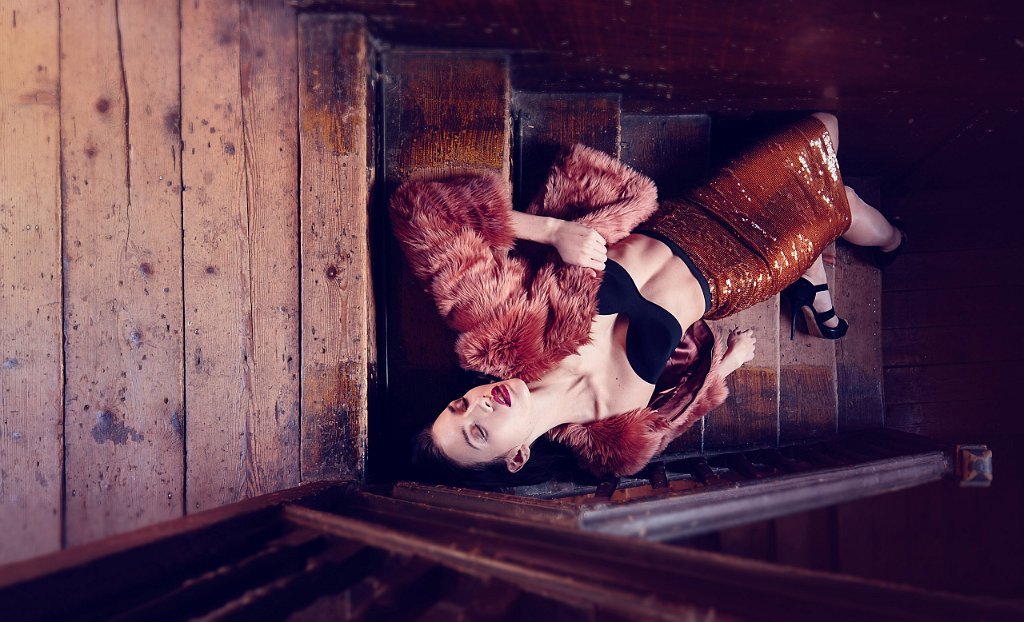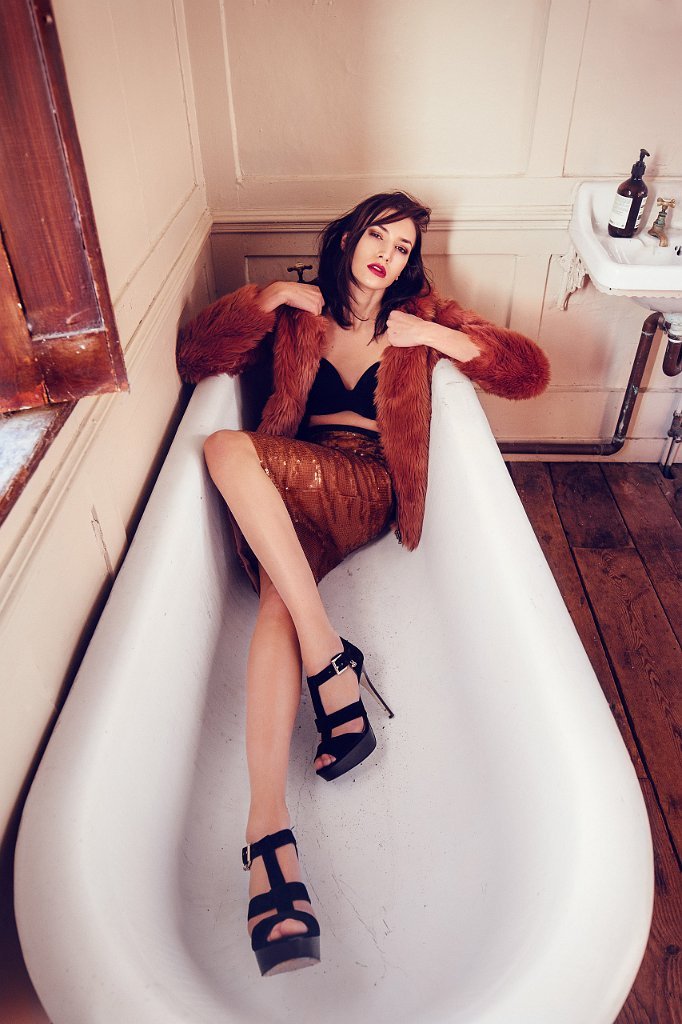I do get this question a lot. I’ve never had an issue with explaining how I took any of the photos I share so it’s not a problem to answer, apart from when there is a “gee your photos are great, you must have pro equipment” undertone that irks me to no end :) The photographer comes first y’all, having better toys does help but they rarely make the difference between a great and a not-so-great photo.
But I digress, as I often do.
When I do see a fashion photo I find interesting, the questions that pop up in my mind first are: who are the team members, how to get a similar styling, where was it taken and what lightning was used. I pretty much never ask myself what camera / lens was used, but other people do ask so…
Now I will gloss over the camera part. If you need to know, I’ve been using full frame DSLRs for years now. If I could afford it, I’d buy a medium format digital back. But this is a topic for another rant… Canon is the make if you have to ask, but I could do what I do with pretty much any full frame digital camera on the market right now. The camera body can be a differentiator in some specific types of photography, but typically fashion is not very demanding on the camera itself, since it’s a quite controlled type of shooting where you (usually) have command of lightning and subject actions.
Lenses then. They are important. Or let me rephrase that. Focal length is important.
You usually consider 3 main factors when talking about lenses: focal length, max aperture and image quality. There are others, e.g. weather sealing, AF speed, image stabilization, etc., but they matter less in this realm.
Of course max aperture is important, but I do not do much of portraiture, so I rarely use apertures below 2.8. Usually I set the aperture to anything between 6.3 and 9. I have “fast” prime lenses that reach big apertures, but mostly because I am a “lens snob” ;) and partly because a faster lens tends to be better than a slower lens at the same focal length and same aperture, although the difference decreases as the aperture gets smaller.
Image quality is important as well. I use primes because they are (slightly) better than high-quality zooms in that regard and the sacrifice in flexibility matters less during a staged photoshoot. But again, fashion editorial is rarely demanding on lenses, meaning you do not tend to use them at the extremes of their envelopes (i.e. fully open).
Focal length is key though. Focal length affects the framing an the perspective. That is a very important creative choice.
My simple rule of thumb is: I use the longest focal length I can meaning, in layman terms, that I stay as far from the subject as I can (as long as I can achieve the framing I want).
Now, the “I can” part depends, mostly from the logistics: how much physical space can I put between me and the model before practical considerations kick in (e.g. we're shooting on a rooftop and I cannot backtrack beyond its end unless I can fly). And, in part, from what lenses I have available at the time I am shooting.
The reason is simple: I like the perspective compression that longer focal lengths allow. It is flattering for the subject (especially for the face) and it enhances separation.
In practical terms, I shoot most of my images between 85mm and 200mm. I consider 85mm my “go to” lens and my most generalist focal length. If I do have the space, I shoot longer focal lengths. The 200mm limit is due to that being my longest available lens. In that range I have 4 lenses that I use regularly: 85mm, 100mm, 135mm and 200mm.
There are cases when the space does not allow to frame what I want with 85mm+, so I use shorter lenses. I have used 50mm, 35mm and 24mm. The shorter you go, the smaller the space you need (or the more background you include in the image). But do keep in mind that the shorter the focal length, the bigger the distortion and the more exaggerated the perspective. It is progressively more difficult to make models look good with wider and wider focal lengths. It can be done of course and sometimes you want the effect (e.g. to focus attention on a detail such as a shoe). Keep the subject close to the center of the frame (rule of thirds be damned) to limit the issues with distortion.
200mm Valkyries – Emilia and Matilda fight it out in front of Canary Wharf

These ones were taken with a 24mm (tilt & shift, but it does not matter here). The fact that Juste is long and thin helps her to look good even at wide focal lengths



